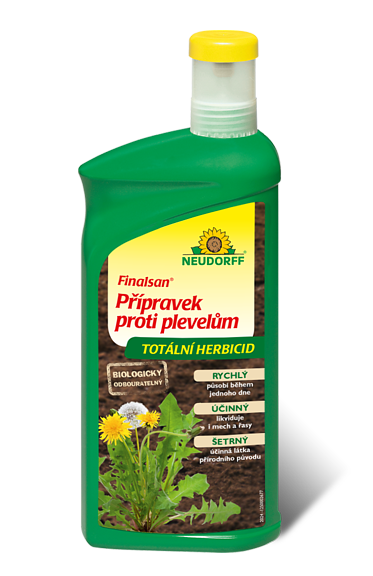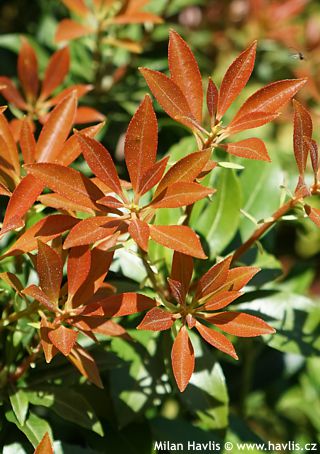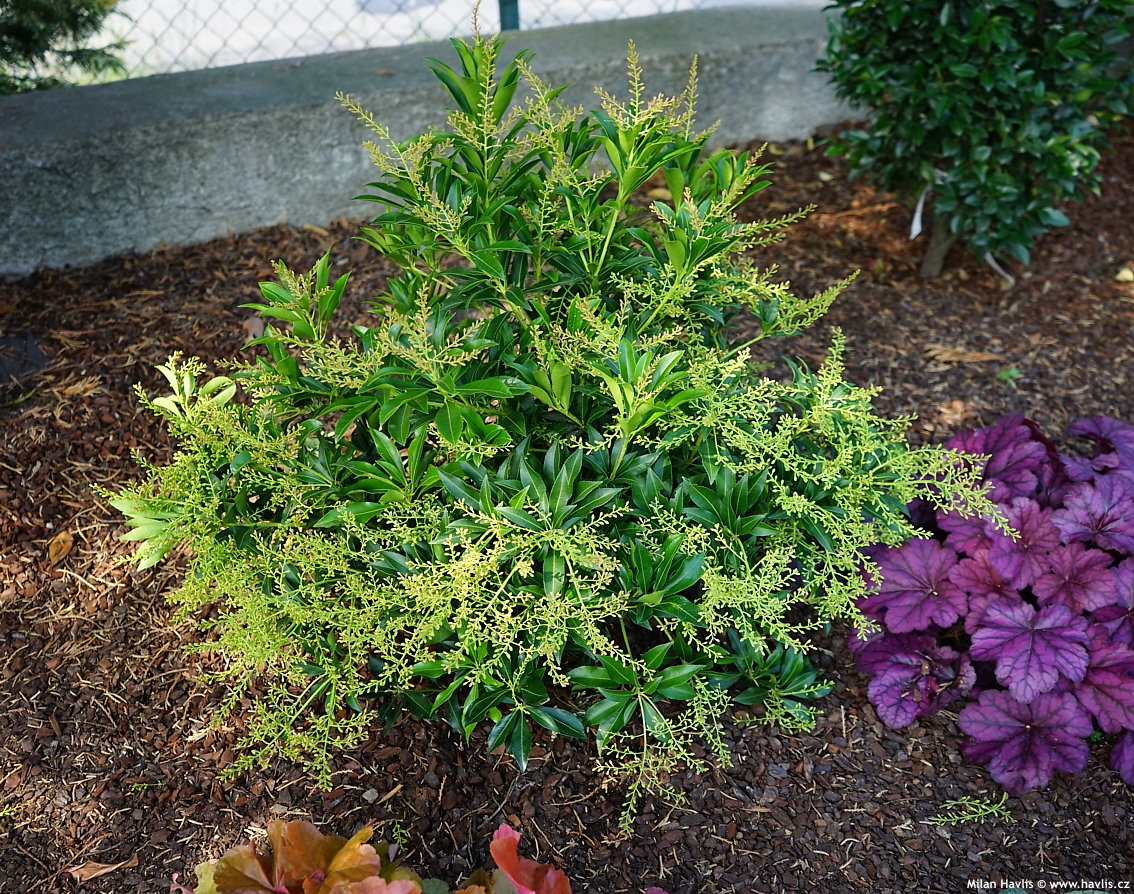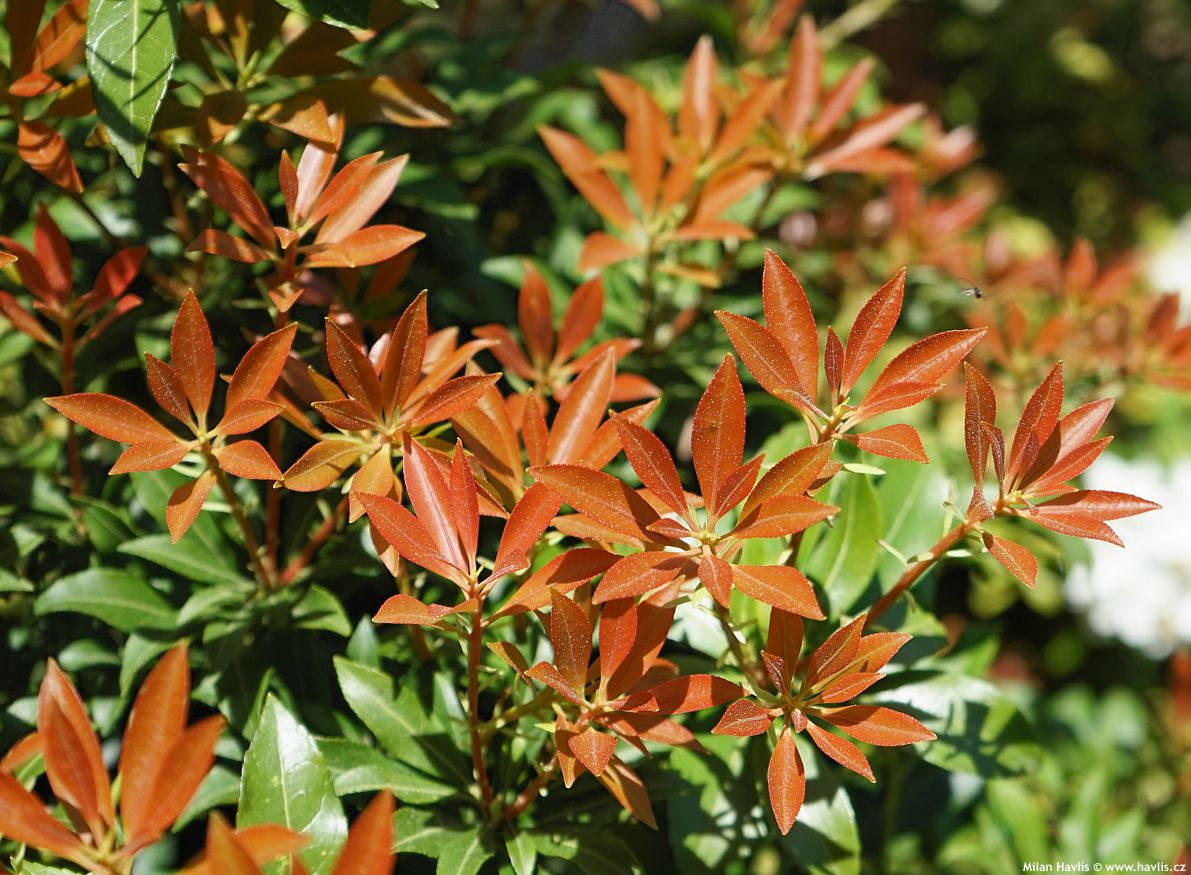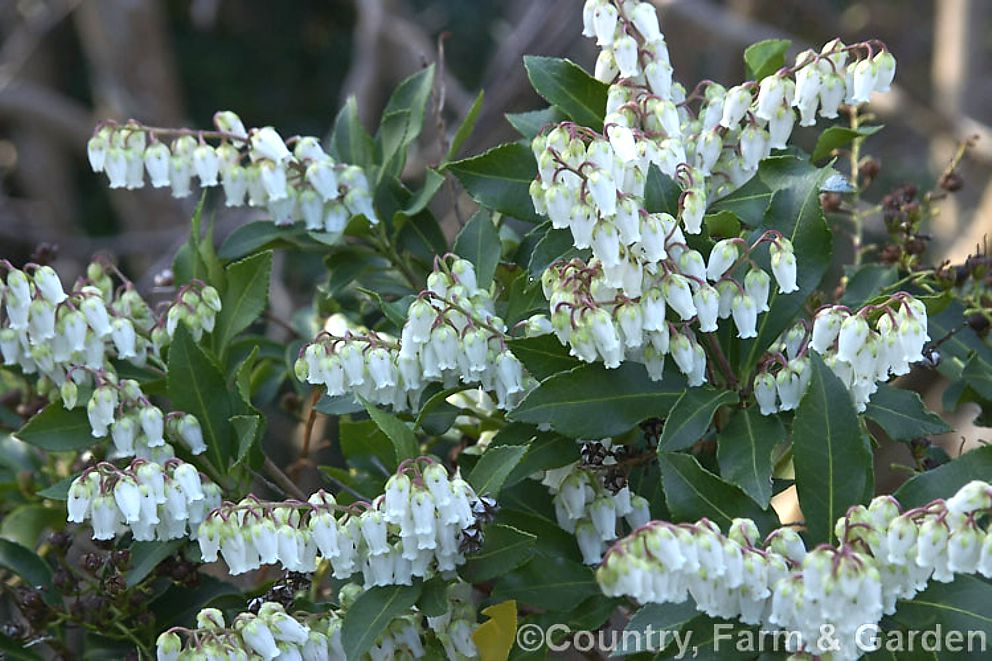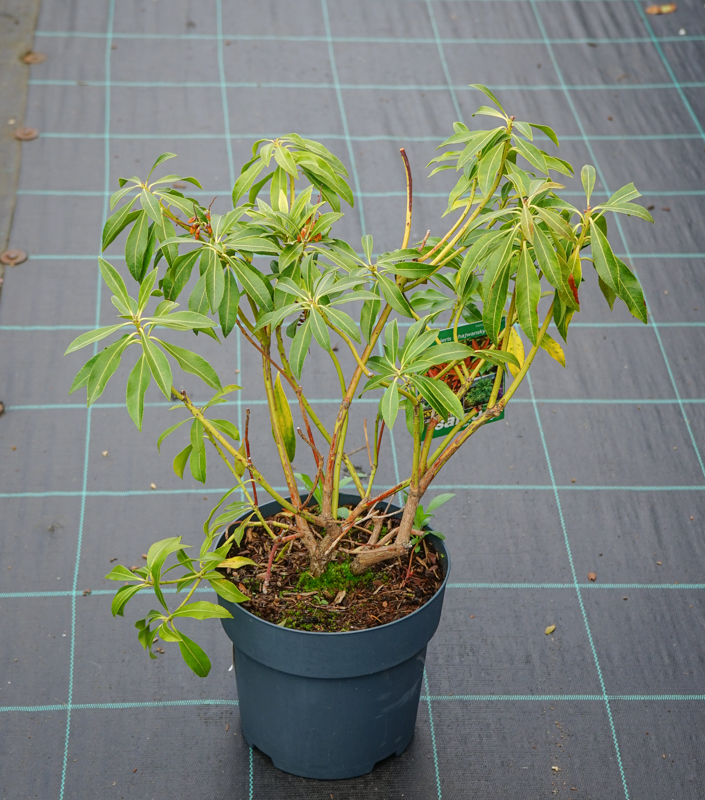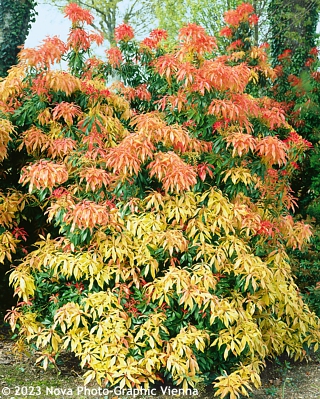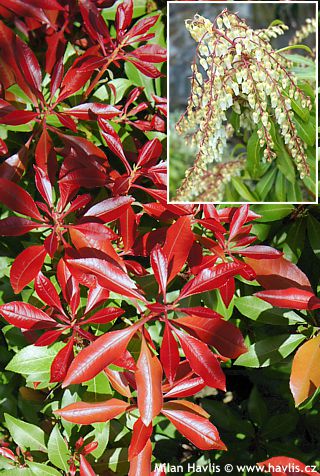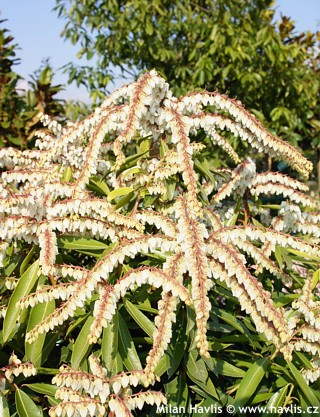Pieris taiwanensis (syn. p. japonica) Taiwanese lily-of-the-valley shrub
Taiwanese lily-of-the-valley shrub is a botanical species the island of Taiwan which was discovered and first described by the British botanist and plant collector E.H. Wilson. He introduced it in Great Britain in 1918, and 4 years later the Royal Horticultural Society (RHS) awarded it the AGM (Award of Garden Merit) for beauty and reliability. It is the ancestor of most modern varieties and is often confused with a Japanese species p. japonica. In some cases the ancestry of the new varieties is questionable whether it was a Taiwanese or a Japanese species.
Its most distinguishing feature is the angle of the flower racemes which are mostly horizontal, while p. japonica has drooping (pendent) inflorescences. If you have a good color cast you can also recognize it by the slightly different color of the newly emerging foliage which is rather brownish red or coppery red compared to maroon or rich red of p. japonica. The leaves are evergreen, leathery, shortly lanceolate, glossy, and ripen to a dark green color.
In late the summer numerous tiny flower buds are formed in horizontal racemes. They open into small, pure white, urn-shaped, slightly fragrant flowers in early spring. Profuse flowering is ensured by sufficiently nutrient soil or seasonal feeding using selective fertilizers for acid-loving shrubs.
It grows slowly into a dense shrub of approximately the same height and width of about 1.5 m in maturity, and even without pruning it keeps a nice shape. It can still be trimmed or rejuvenated in almost any way as it readily regenerates from old wood, too, ideally as soon as the flowers have gone. Profuse flowering as well as the vibrant colour of new leaves make this shrub a colored gem not only for ericaceous beds.
Pieris does not require much maintenance. But if you wish to have a perfect plant here are a few tips: cut off spent flower racemes to prevent them from making seeds. During late spring and summer check the leaves 2 or 3 times for tiny spots on the upper sides – they manifest insect attack whose miniature worms are living inside the leaves and produce sticky sap on the underneath of the leaves. In such case spray it with a suitable insecticide – one dose is usually enough. In winter remove heavy and wet snow from the top of the plant to prevent its fragile branches from bending or breaking. Pruning is possible immediately after flowering.
Ericaceous plants, among which pieris belongs, require soil that is light, acidic, and constantly moist but not wet. If your garden soil is too heavy do not dig a hole at all but make a raised bed. Use a good mixture of peat, fine bark chips, and leaf mould. Keep the soil moist by mulching. Slow-release fertilizers for acid-loving plants are advised. It is yet a bit hardier than p. japonica and withstands about -29 °C. It is suitable for year-round cultivation in outdoor planters with good drainage (no saucers).
Last update 20-05-2022
Goods are shipped all over Europe. For Russia and U.K. and for further details please read about SHIPPING OPTIONS HERE.
Are you interested in a serious discount for orders NOV-FEB? Check your options here.
THE PRICES INCLUDE VAT of 15%. For quick conversion you can use 1 CZK = approx. 0.04 EUR
- STANDARD QUALITY - Plants of this group are 1st class quality with number of branches and overall density adequate to their size and age, considering they were container grown.
- DE LUXE QUALITY - This label guarantees a luxurious quality of manually selected plants that, compared to their height and age, are exceptionally dense and beautiful.
- EXTRA - These plants are usually mature and bigger specimens with exceptional overall appearance.
- STANDARD (as described in the plant form) means a tree with a trunk of 190-210 cm and a crown at the top, unless specified differently. The commercial size for trees is their girth measured in the height of 1m from ground.
- HOBBY - These plants are of the same quality as our standard-quality plants but younger and therefore cheaper.
- SHRUB - a woody plant with branches growing bushy from the ground level.
- HALF-STANDARD or MINI-STANDARD - a small tree with shorter trunk, its size is usually specified.
- FEATHERED - These are trees with branches growing already from the base of the trunk and up along the stem.
- GRASSES and PERENNIALS - Sizes given usually read the diameter of the pot or the clump, as specified.






























